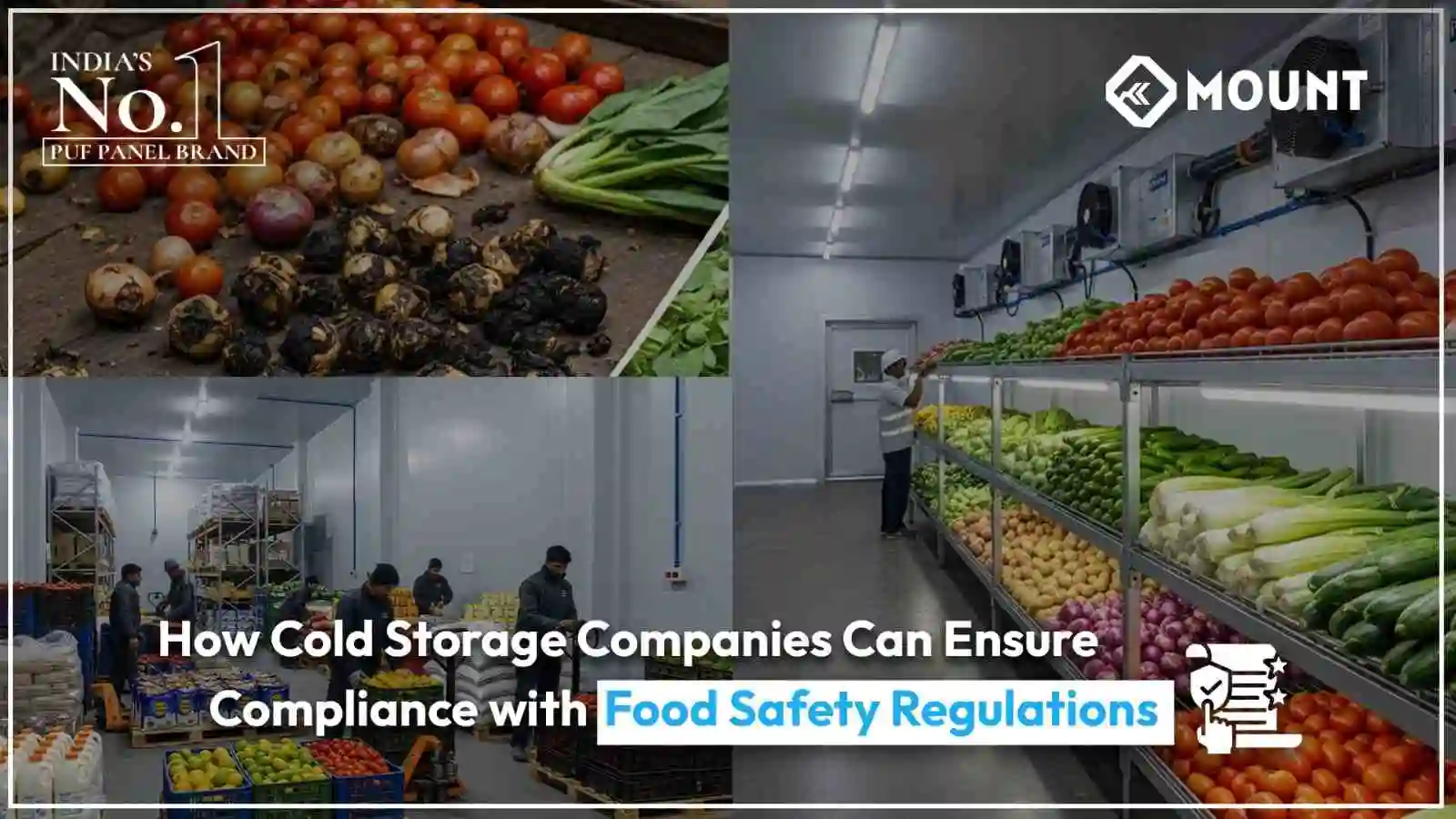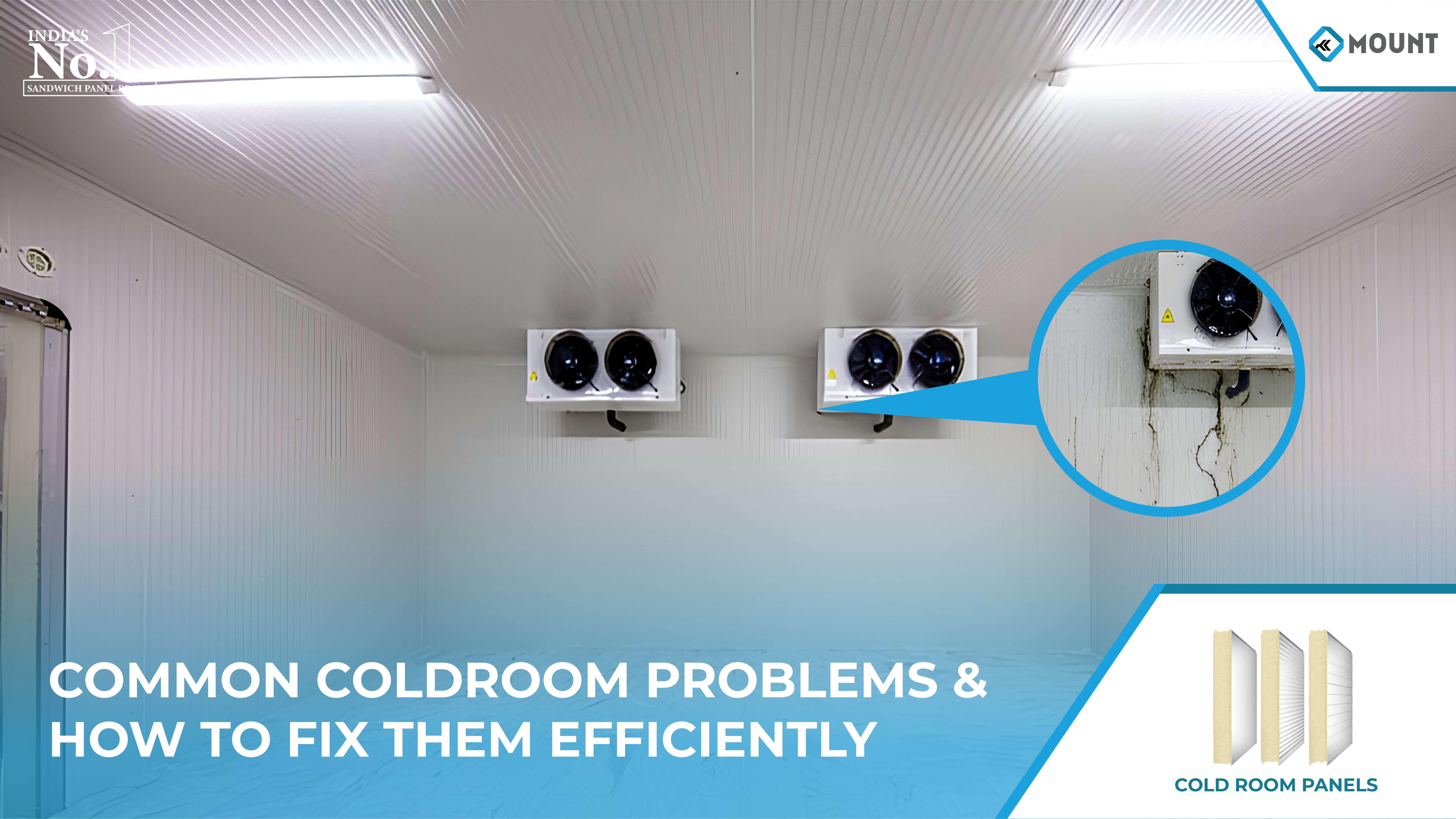
How Cold Storage Companies Can Ensure Compliance with Food Safety Regulations
India faces a staggering challenge in food wastage, with approximately 40% of fresh produce perishing before reaching consumers. This alarming statistic translates to economic losses worth billions and highlights the critical need for proper cold storage infrastructure. For cold storage companies operating in this landscape, ensuring compliance with food safety regulations isn’t just about meeting legal requirements—it’s about contributing to national food security while building sustainable businesses.
PUF Panel Manufacturer solutions have emerged as game-changers in this sector, providing the thermal efficiency and regulatory compliance that modern cold storage facilities demand. Mount understands that successful cold storage operations require more than just refrigeration; they need comprehensive insulation systems that maintain consistent temperatures while meeting stringent safety standards.
Understanding India’s Food Wastage Crisis and Cold Storage Solutions
The magnitude of food wastage in India stems largely from inadequate storage and transportation infrastructure. Fresh fruits, vegetables, dairy products, and meat products lose their nutritional value and safety when exposed to temperature fluctuations during storage. This is where properly designed cold storage facilities become essential components of the food supply chain.
PUF Panel Thickness plays a crucial role in maintaining optimal storage conditions. The right insulation thickness ensures energy efficiency while preventing temperature variations that compromise food safety. Mount’s expertise in determining appropriate panel specifications helps cold storage operators achieve compliance with Food Safety and Standards Authority of India (FSSAI) regulations.
Cold storage facilities must maintain specific temperature ranges for different product categories. Dairy products typically require temperatures between 2-4°C, while frozen foods need consistent -18°C or lower. PUF Panel Manufacturer specifications must align with these requirements to ensure regulatory compliance and product integrity.
Essential Compliance Standards for Cold Storage Operations
FSSAI guidelines mandate specific infrastructure requirements for food storage facilities. These include proper insulation systems, temperature monitoring equipment, and hygiene protocols. PUF Panel systems contribute significantly to meeting these standards by providing superior thermal resistance and moisture protection.
The Building Integrated Photovoltaic (BIPV) approach, combined with high-performance insulation, helps cold storage facilities achieve energy efficiency standards while maintaining food safety compliance. Roofing PUF Panels offer dual benefits of structural integrity and thermal performance, making them ideal for large-scale cold storage applications.
Documentation and traceability are equally important compliance aspects. Cold storage operators must maintain records of temperature logs, cleaning schedules, and pest control activities. The stability provided by quality insulation systems ensures consistent environmental conditions that support accurate monitoring and record-keeping.
PUF Panels for Cold Storages: Technical Specifications and Benefits
Modern PUF Panels for cold storages offer superior insulation properties with thermal conductivity values as low as 0.022 W/mK. This exceptional performance translates to reduced energy consumption and more stable internal temperatures, both critical for food safety compliance.
The closed-cell structure of polyurethane foam prevents moisture infiltration, which could lead to bacterial growth and compromise food safety. Wall panels for cold storages must provide continuous insulation without thermal bridges that create temperature variations.
Installation quality significantly impacts performance outcomes. Proper joint sealing and panel alignment ensure the insulation system maintains its integrity throughout the facility’s operational life. Mount’s technical expertise ensures installations meet both performance and compliance requirements.
PUF Roofing Panel Thickness: Optimizing Performance and Compliance
Determining appropriate PUF Roofing Panel Thickness requires careful consideration of local climate conditions, facility size, and stored product requirements. Thicker panels provide better insulation but increase initial costs, making optimization crucial for project success.
Standard thickness options range from 50mm to 200mm, with selection based on specific thermal requirements and budget constraints. Mount’s technical team provides guidance on selecting optimal specifications that balance performance, compliance, and cost-effectiveness.
The relationship between panel thickness and energy efficiency directly impacts operational costs. Properly sized insulation systems can reduce energy consumption by 20-30% compared to inadequately insulated facilities, making them economically attractive while ensuring compliance.
Wall Panels for Cold Storages: Installation and Maintenance Best Practices
Successful wall panels for cold storages installation requires attention to detail and adherence to manufacturer specifications. Proper vapor barriers, joint sealing, and structural support ensure long-term performance and regulatory compliance.
Regular maintenance schedules help preserve insulation performance and extend system life. Visual inspections, thermal imaging assessments, and prompt repairs prevent small issues from becoming major compliance problems.
Mount provides comprehensive support throughout the project lifecycle, from initial design consultation through ongoing maintenance guidance, ensuring cold storage facilities maintain optimal performance and regulatory compliance.
Frequently Asked Questions
Q: What PUF panel thickness is recommended for different cold storage applications?
A: Thickness requirements vary by application: 75-100mm for chilled storage (0-5°C), 100-150mm for frozen storage (-18°C), and 150-200mm for deep-freeze applications (-25°C or lower).
Q: How do PUF panels help reduce India’s food wastage problem?
A: PUF panels maintain consistent temperatures that preserve food quality, extend shelf life, and prevent spoilage, directly contributing to reducing the 40% food wastage rate in India’s supply chain.
Q: What compliance certifications should cold storage PUF panels meet?
A: Panels should meet FSSAI food safety standards, BIS quality certifications, fire safety norms, and environmental regulations for sustainable operations.
Q: How often should cold storage insulation systems be inspected for compliance?
A: Monthly visual inspections, quarterly thermal performance assessments, and annual comprehensive evaluations ensure continued compliance with food safety regulations and optimal performance.


